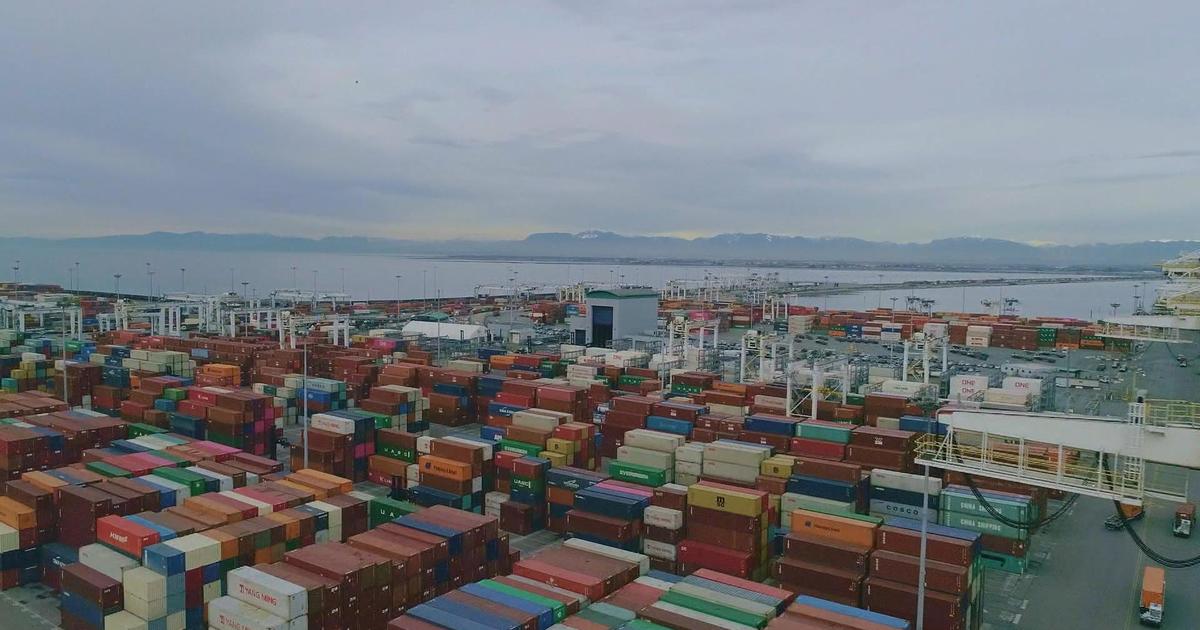Global Trade Tensions Escalate as Trump Targets Canada, Mexico, and China
In a significant escalation of international trade disputes, President Donald Trump has announced a series of tariffs aimed at key trading partners, notably Canada, Mexico, and China. This move has sent shockwaves through the global economy, raising fears of a potential trade war that could have far-reaching consequences for international relations and economic stability.
The Context of Trade Tensions
Trade tensions have been building for several years, fueled by a variety of factors including trade imbalances, intellectual property theft, and the desire for economic nationalism. President Trump’s administration has adopted a confrontational stance toward trade, arguing that previous agreements have been unfavorable to the United States. By targeting Canada, Mexico, and China, Trump aims to rectify what he perceives as injustices in trade practices.
The tariffs imposed on these countries are part of a broader strategy to renegotiate existing trade agreements and protect American jobs. But the immediate effects of these tariffs are causing alarm among economists and industry leaders, who warn that retaliatory measures by these countries could lead to a spiral of escalating tariffs and economic fallout.
Impact on Canada and Mexico
Canada and Mexico, as close neighbors and allies, are particularly affected by Trump’s tariff policies. The United States-Mexico-Canada Agreement (USMCA) was designed to replace the North American Free Trade Agreement (NAFTA) and aimed to create a more balanced trading environment. However, the imposition of tariffs undermines the spirit of this agreement.
- Canada: As one of the largest trading partners of the United States, Canada stands to lose significantly from these tariffs. The Canadian government has expressed its intent to retaliate, which could include tariffs on American goods, particularly in the agricultural sector.
- Mexico: Similar to Canada, Mexico is also vulnerable to the effects of these tariffs. The Mexican economy relies heavily on exports to the U.S., and any increase in tariffs could lead to higher prices for Mexican goods, which may ultimately harm the consumer in the U.S. as well.
Both countries are now faced with the challenge of protecting their own economic interests while navigating the complexities of a trade dispute initiated by their powerful neighbor. This situation creates an environment of uncertainty, where businesses may hesitate to invest or expand due to concerns over potential retaliatory tariffs.
China: The Trade Behemoth
China, as the world’s second-largest economy, has been a primary target for Trump’s trade measures. The tensions with China primarily stem from accusations of intellectual property theft, forced technology transfers, and a significant trade imbalance. Trump’s administration has imposed tariffs on billions of dollars’ worth of Chinese goods, further escalating the situation.
The implications of these tariffs are profound:
- Economic Growth: Many analysts fear that ongoing trade tensions could stymie global economic growth. China’s economy is interwoven with that of the U.S., and tariffs could disrupt supply chains and increase costs for consumers and businesses alike.
- Retaliation from China: China has already warned of retaliatory measures, which could include tariffs on U.S. agricultural products, a sector that is particularly vulnerable given its reliance on exports to China.
- Global Supply Chains: With many companies relying on Chinese manufacturing, tariffs could force businesses to reevaluate their supply chains, potentially leading to higher production costs and increased prices for consumers.
Potential Repercussions for the Global Economy
The escalation of global trade tensions as Trump targets Canada, Mexico, and China raises serious concerns about the future of international trade. Economists warn that prolonged trade disputes could lead to a decrease in global trade volumes, affecting economic growth worldwide.
Key repercussions include:
- Job Losses: Industries that rely heavily on exports may see job losses as tariffs increase prices and reduce demand for American goods abroad.
- Increased Prices: Consumers can expect to pay more for goods as companies pass on the costs of tariffs to their customers.
- Market Volatility: Uncertainty surrounding trade policies can lead to increased volatility in financial markets, affecting investments and retirement savings.
International Relations at Stake
Beyond the economic implications, the escalation of trade tensions has the potential to strain international relations. Countries like Canada and Mexico, traditionally allies of the United States, may seek to strengthen ties with other nations in response to aggressive trade policies. Additionally, China’s growing influence on the global stage could lead to a realignment of alliances as countries react to U.S. tariffs.
This shift could result in a fragmented global trading system, where countries prioritize bilateral agreements over multilateral cooperation. In the long run, such a scenario may undermine the principles of free trade that have governed international commerce for decades.
Looking Ahead: The Path to Resolution
Despite the current turmoil, there remains hope for resolution. Diplomatic negotiations are essential in de-escalating trade tensions and finding common ground among the affected nations. The stakes are high; therefore, all parties must approach discussions with an open mind and a willingness to compromise.
- Engagement and Dialogue: Continuous dialogue between the U.S., Canada, Mexico, and China can lead to mutually beneficial solutions. History has shown that negotiations often yield better outcomes than prolonged disputes.
- Reevaluating Trade Policies: The Trump administration may need to reassess its approach to trade, ensuring that tariffs do not become a long-term strategy but rather a tool for negotiation.
In conclusion, while global trade tensions escalate as Trump targets Canada, Mexico, and China, the potential for resolution remains. By fostering dialogue and cooperation, the international community can work towards a more stable and prosperous trading environment. The road ahead may be fraught with challenges, but with collective efforts, a positive outcome is achievable.
See more CCTV News Daily



